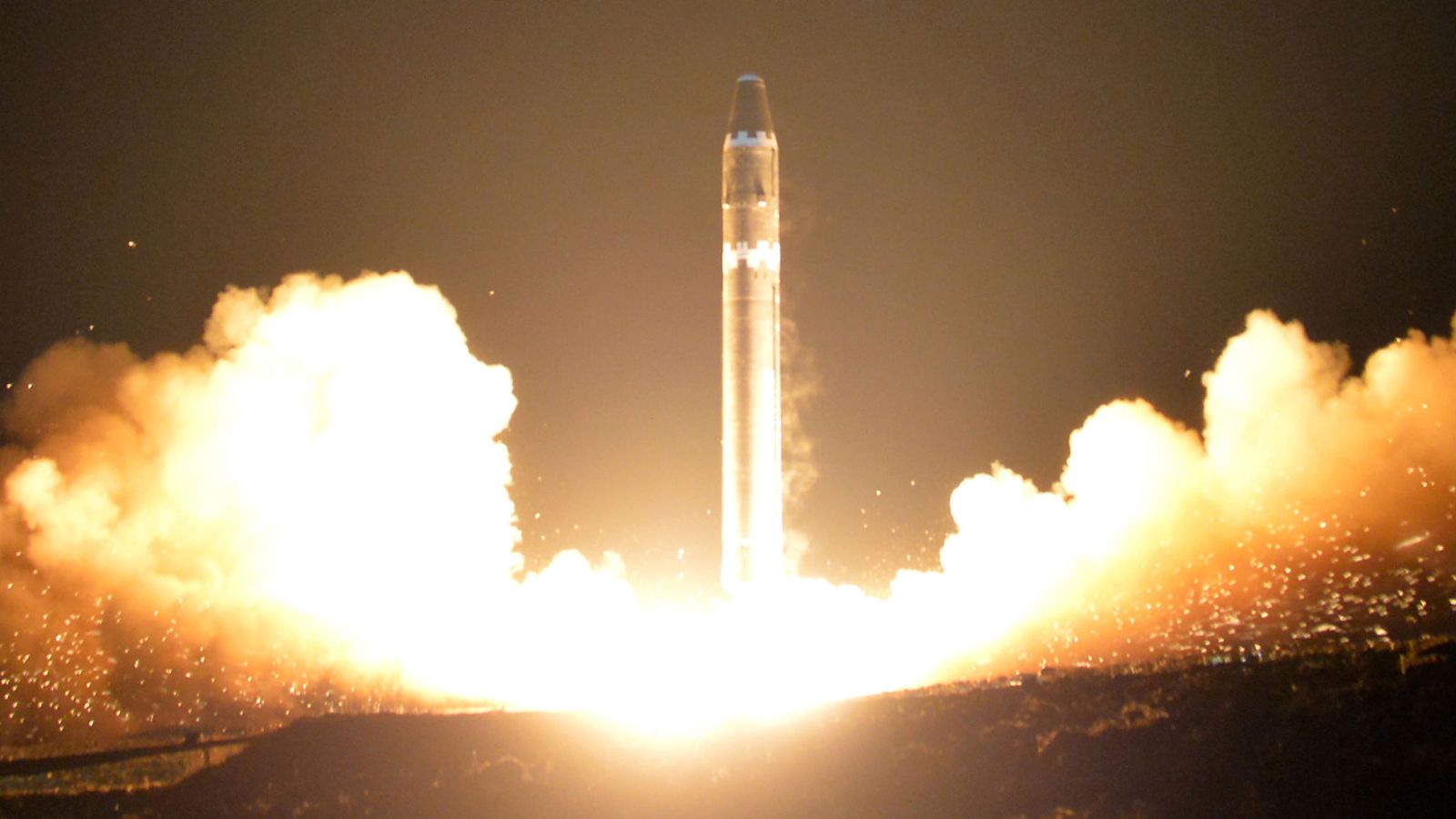North Korea 'fires two short-range missiles'
Thu 09 May 2019, 16:10:28

South Korea's joint chiefs of staff said in a statement the missiles were fired towards the east from Sino-ri in North Pyongan province in the northwest of the country at around 8.30am (BST).
They flew around 420km (260 miles) and 270km (167 miles), respectively.
The military gave no further details of the launches which they said were still being analysed with US intelligence officials.
It comes hours after North Korean state media described the test-launch of its new short-range ballistic missile and several rockets at the weekend as a routine and defensive military exercise and called South Korea's criticism of the launches a "cock-and-bull story".
North Korean leader Kim Jong Un was pictured watching Saturday's drills - also on the eastern coast - and expressed "great satisfaction", according to Pyongyang's official Korean Central News Agency (KCNA).
He was also quoted as saying that soldiers should keep a "high alert posture" and strengthen their ability to defend the country.
It was the North's first test of a ballistic missile since it launched an intercontinental ballistic missile in November 2017.
The area where Thursday's projectile was launched is believed to be the site of a medium-range Rodong missile base on North Korea's east coast, Washington-based think tank, Centre for Strategic and International Studies, said.
Pyongyang
has been frustrated in recent months with the lack of progress in talks with the US following the collapse of Donald Trump and Mr Kim's summit in Hanoi, Vietnam, in February.
has been frustrated in recent months with the lack of progress in talks with the US following the collapse of Donald Trump and Mr Kim's summit in Hanoi, Vietnam, in February.
Earlier this month, Pyongyang warned the US it could face "truly undesired consequences" if it failed to change its stance in talks over denuclearisation by the end of the year.
During the last summit, President Trump for the first time explicitly defined what he meant by denuclearisation when he handed Mr Kim a piece of paper demanding Pyongyang hand all its nuclear weapons and bomb fuel over to the US.
Mr Kim demanded the lifting of all US sanctions in exchange for closing the Yongbyon nuclear facility where North Korea enriches uranium.
The head of an international organisation , who in March last year arranged a historic handshake between parliamentarians from North and South Korea, said he still believed their could be a breakthrough in talks on normalising relations between the two nations - despite Thursday's launches.
"I think personally, and realistically, this is posturing, it is part of the process of negotiations," said Martin Chungong, secretary-general of the 179-country Inter-Parliamentary Union (IPU), in Geneva.
"You don't go to bargain from a weak position. You have a full palette of requirements that you want met, and then hopefully you can find common ground."
The rival Koreas have a long history, having fought one of the 20th century's bloodiest conflicts.
The divided peninsula is today still technically in a state of war because the 1950-1953 Korean War ended in a truce, not a peace treaty.
No Comments For This Post, Be first to write a Comment.
Most viewed from International
Most viewed from World
AIMIM News
Latest Urdu News
Most Viewed
May 26, 2020
Do you think Canada-India relations will improve under New PM Mark Carney?
Latest Videos View All
Like Us
Home
About Us
Advertise With Us
All Polls
Epaper Archives
Privacy Policy
Contact Us
Download Etemaad App
© 2025 Etemaad Daily News, All Rights Reserved.

.jpg)
.jpg)
.jpg)






.jpg)


.jpg)
.jpg)
.jpg)
.jpg)
.jpg)
.jpg)
.jpg)
.jpg)
.jpg)
.jpg)
.jpg)
.jpg)

















